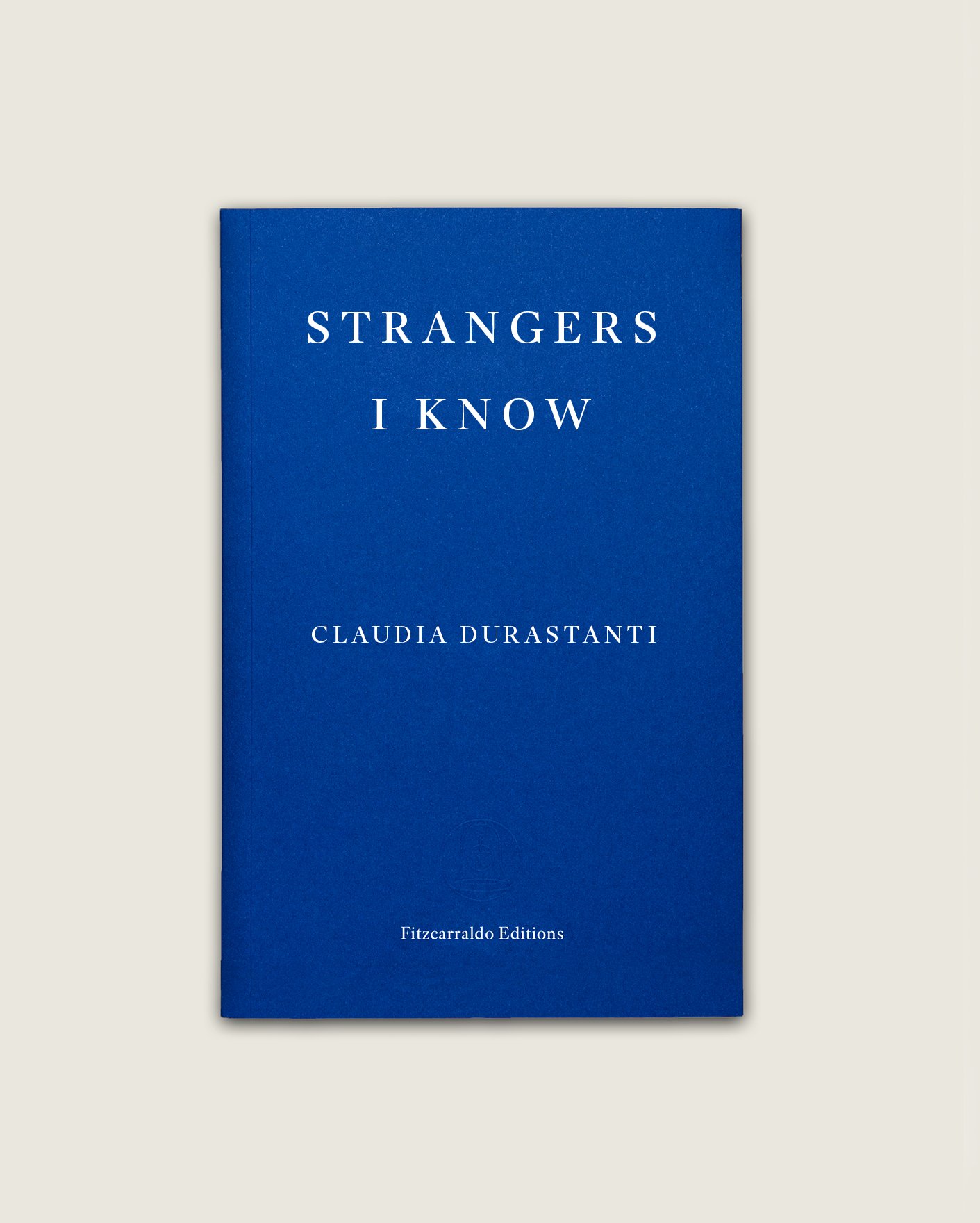Strangers I Know: a process of disentaglement
Image via Fitzcarraldo Editions
‘In department-store dressing rooms, I’ll notice her reflection in the mirror and suddenly see Piazza Navona, the roses, those nights at dance clubs and her imitating the movements of others; I see her squandered youth, much more entertaining than my own; her consuming griefs; her strange night dreams; her fears that I’m too shy, too frightened to have a memorable life.’
They are unnerving – uncanny, even – those moments in which I realise, or perhaps just remember, that my mother exists beyond her relation to me. Beyond her role as ‘mother’, she exists as a person, ensnared in a web of anxieties and desires and sorrows as complex and as overwhelming as my own. Those moments beneath which lies an undercurrent of shame, a guilt that I could be so selfish as to limit my own mother’s life to but a fragment of my own, yet moments that provoke an anticipation, an excitement, for they promise a torrent of stories untold.
With seemingly unaffected, indifferent prose, Claudia Durastanti crafts a narrative whose beauty is as unexpected as it is heart-aching. These words are unaware of their own weight. One inky evening in early March I hear Durastanti speak at a launch event for book Strangers I Know, recently published in translation by Fitzcarraldo Editions. ‘There’s no love between deaf people – it’s a fantasy of hearing,’ she reads with the same frank, detached tone that permeates her writing. ‘There’s sex, intimacy, but not need for love. Being alike is everything.’ Durastanti is the daughter of two deaf parents, neither of whom taught her sign language. Such an upbringing engendered a disconnect between Durastanti’s experiences of the world and her expressions of them. Mother and daughter communicate through a muddle of lip reading, and gesture, though the effort leaves Durastanti exhausted, her brain ‘rumbling with broken syntagmas.’
Beyond transgressing the boundaries between signed and spoken languages, Durastanti’s relationship to self-expression is further complexified by a childhood lived out in different tongues: of Italian descent, her family spent the early years of her life in Brooklyn, returning later to a small town in Basilicata, Southern Italy. Durastanti herself only learned Italian upon this return. In this interstitial space, Durastanti created her own cosmos of meaning. As she emerges from this sphere, she approaches the realm of standard Italian with a curiosity that renders her writing crisp and novel. Elizabeth Harris provides a translation that is mostly brilliant, falling short only in rare moments in which Harris falls into clichéd phrasings which read unnaturally amid Durastanti’s innovative and lively utterances.
The book was published in Italian under the title La Straniera. The English epigraph notes the female gendering of the word while acknowledging its plurality of meaning, translating as ‘foreigner; alien,’ yet also as ‘stranger, outsider.’ The title alludes to Durastanti’s mother: natives to the small village in Basilicata would interpret her warped vowels and uneven intonation as symptoms of foreignness rather than of deafness. She didn’t challenge them. Translating this title into English presents a frustrating conundrum as the lack of a grammatical gendering system sacrifices the specific femininity of Durastanti’s stranger. ‘Strangers I Know’ wonderfully captures the intriguing paradox of simultaneous proximity and distance – even if the use of the plural dilutes the focus on Durastanti’s relationship with her mother: the pulse that enlivens this story. Strangers I Know gathers a collection of musings on Family, Travels and Love – to name a few of its sections – though none of these ponderings stray from the orbit of this mother-daughter relationship.
Fitzcarraldo Editions divide their publications into two categories: fiction, denoted by blue backing, and non-fiction which are cloaked in white. The cobalt cover of Strangers I Know suggests a novelistic nature to the book, though it wavers between the fantastical and the factual. My attempts to frame the character of Strangers I Know feel inadequate. It is not quite an autobiography: it feels more alive, more analytical than that, concerned not so much with events themselves as their lingering impact. Nor is it an ode to a glorifying maternal figure: Durastanti details her mother’s flaws as meticulously as she does her charms. It feels like a process of disentanglement: through Strangers I Know Durastanti searches to identify the ways in which she and her mother are intertwined, perhaps in order to untwine her identity from her mother’s. The book’s focus shifts increasingly from the life of the mother to the life of Durastanti herself. In one of the final sections, Durastanti unveils a vulnerable worry. ‘I constantly ask myself how to go about being young while knowing that you were young,’ she confesses, ‘how for some people, time was never looking back with regret or nostalgia, and it wasn’t ever feeling intensely anxious about the future, either; it was just right now.’ It’s an incredibly personal worry, yet one reminiscent of that of her mother, in those department-store dressing rooms. As the distance Durastanti imposes between herself and her mother grows ever larger, their voices seem to grow ever similar.
